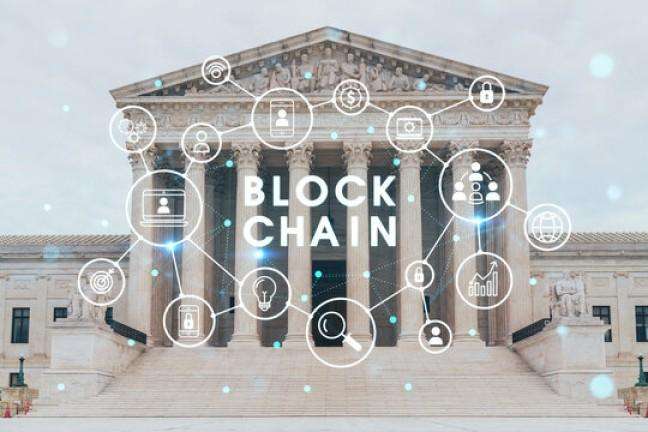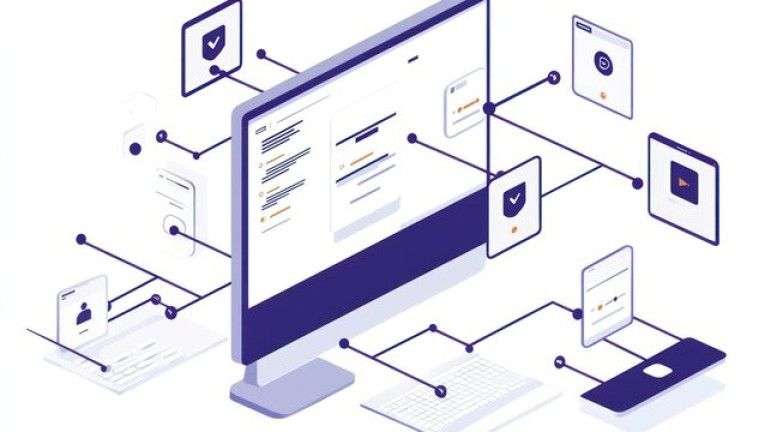Introduction
Blockchain technology is changing financial reporting, auditing, and business processes. As an accounting professional, I recognize the need to stay ahead of these advancements. The AICPA Blockchain Certificate provides foundational knowledge of blockchain applications in accounting and finance. In this guide, I explore its relevance, structure, benefits, and practical applications, helping you determine if it aligns with your career goals.
Table of Contents
Understanding Blockchain in Accounting
Blockchain is a decentralized digital ledger that records transactions securely. It enhances transparency, reduces fraud, and increases efficiency. Accountants, auditors, and finance professionals use blockchain for smart contracts, supply chain management, and financial reconciliation.
Key Features of Blockchain
| Feature | Description |
|---|---|
| Decentralization | No single entity controls the network. |
| Transparency | Transactions are visible and verifiable. |
| Immutability | Once recorded, data cannot be changed. |
| Security | Encryption protects transaction integrity. |
What Is the AICPA Blockchain Certificate?
The AICPA Blockchain Certificate is an online program designed for finance professionals. It covers blockchain fundamentals, use cases, risks, and implications for accounting and auditing. The course suits CPAs, auditors, tax professionals, and consultants looking to understand blockchain’s role in financial systems.
Certificate Structure
The course consists of several modules:
- Introduction to Blockchain – Understanding how blockchain works.
- Cryptography and Security – Exploring encryption methods.
- Smart Contracts and Applications – Examining real-world use cases.
- Impact on Accounting and Auditing – Addressing regulatory and compliance concerns.
- Risk Management – Identifying risks associated with blockchain implementation.
| Module | Key Learning Objective |
|---|---|
| Introduction to Blockchain | Define blockchain technology and its components. |
| Cryptography and Security | Explain hashing, digital signatures, and encryption. |
| Smart Contracts and Applications | Describe use cases in finance, supply chain, and auditing. |
| Impact on Accounting and Auditing | Assess blockchain’s influence on financial reporting. |
| Risk Management | Identify security threats and compliance issues. |
How Does the AICPA Blockchain Certificate Compare to Other Certifications?
Several blockchain-related certifications exist, but the AICPA Blockchain Certificate focuses specifically on accounting and finance professionals.
| Certification | Focus Area | Target Audience | Duration |
|---|---|---|---|
| AICPA Blockchain Certificate | Accounting and auditing | CPAs, auditors, finance professionals | Self-paced |
| Certified Blockchain Professional (CBP) | Technical implementation | Developers, IT professionals | 3–6 months |
| Certified Blockchain Expert (CBE) | Business applications | Consultants, business analysts | 2–3 months |
| Certified Ethereum Developer | Ethereum smart contracts | Software engineers | 3–6 months |
Practical Applications of Blockchain in Accounting
Understanding blockchain is beneficial, but applying it effectively is crucial. Here are key use cases relevant to accounting professionals:
1. Audit and Assurance
Auditors can use blockchain for real-time transaction verification. Instead of sampling, they can validate full datasets, reducing fraud risk.
Example Calculation: Suppose a company processes 10,000 transactions per year. Traditional audit sampling may verify only 500 transactions (5%). With blockchain, auditors can review all 10,000 transactions instantly, increasing accuracy.
2. Smart Contracts in Accounting
Smart contracts execute transactions automatically when conditions are met. This reduces manual intervention in invoice processing and compliance reporting.
Example: A company automates lease payments using smart contracts. When a tenant’s payment clears, the contract automatically updates financial records. This reduces processing time and errors.
3. Fraud Prevention and Internal Controls
Blockchain’s immutability prevents unauthorized transaction alterations, strengthening internal controls.
Comparison of Traditional vs. Blockchain Accounting
| Aspect | Traditional Accounting | Blockchain Accounting |
|---|---|---|
| Data Verification | Manual reconciliation | Automated validation |
| Fraud Risk | High | Low (Immutable records) |
| Transaction Processing | Time-consuming | Instant |
Benefits of the AICPA Blockchain Certificate
After completing the course, professionals gain skills that improve their ability to analyze blockchain applications in accounting.
Career Advantages
- Enhanced Knowledge: Understand blockchain’s impact on accounting and finance.
- Competitive Edge: Stay ahead in a technology-driven industry.
- Increased Job Opportunities: Employers seek blockchain-literate accountants.
- Professional Recognition: AICPA certification boosts credibility.
Industry Demand for Blockchain Knowledge
Many companies integrate blockchain into their operations, increasing the need for professionals with blockchain expertise.
| Industry | Blockchain Use Case |
|---|---|
| Banking | Secure transactions, fraud prevention |
| Supply Chain | Real-time tracking, contract automation |
| Healthcare | Patient data security, compliance |
| Real Estate | Automated property transfers, transparent records |
Challenges and Considerations
While blockchain is transformative, challenges exist.
Regulatory Uncertainty
Blockchain regulations vary across jurisdictions, creating compliance complexities.
Integration Costs
Implementing blockchain requires investment in infrastructure and training.
Skill Gaps
Many finance professionals lack blockchain expertise, increasing demand for specialized training.
Is the AICPA Blockchain Certificate Worth It?
The value of the certificate depends on career goals.
| Factor | Consideration |
|---|---|
| Career Goals | Ideal for finance professionals embracing blockchain. |
| Cost vs. ROI | Knowledge gained can lead to higher salaries. |
| Industry Trends | Blockchain adoption is growing in finance. |
| Alternative Learning | Free resources exist, but structured learning provides depth. |
Conclusion
Blockchain is reshaping accounting and finance. The AICPA Blockchain Certificate offers a structured way to learn its implications, providing practical knowledge applicable to real-world scenarios. If you want to future-proof your career, this certification is a worthwhile investment.





